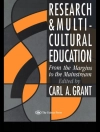A powerful, sophisticated, and original critique on how the disciplines of law and psychiatry behave and on how the mental health and justice systems operate, Punishing the Mentally Ill reveals where, how, and why the identity and humanity of persons with psychiatric disorders are consciously and unconsciously denied. Author Bruce A. Arrigo contends that despite periodic and well-intentioned efforts at reform, the current law-psychiatry system functions to punish the mentally ill for being different. The book synthesizes a wide range of mainstream and critical literature in sociology, law, philosophy, history, psychology, and psychoanalysis to establish a new theory of punishment at the law-psychiatry divide. To situate the analysis, enduring psycholegal issues are explored including the meaning of mental illness, definitions and predictions of dangerousness, the ethics of advocacy, the right to community-based treatment, the logic of forensic courtroom verdicts, transcarceration, and the execution of mentally disordered offenders among others. Punishing the Mentally Ill shows that current mental disability law research, programming, and policy are seriously flawed and that wholesale reform is necessary if the goals of citizen justice, social well-being, and humanism are to be realized.
قائمة المحتويات
Foreword
Preface
Acknowledgments
Introduction
PART I. Civil Confinement
1. Civil Commitment and Paternalism: Legal and Psychiatric Dynamics
2. Medicolegal Advocacy for the Mentally Ill: A Question of Ethics
3. The Right to Community-Based Treatment
4. Policing and Disciplining Mental Illness: Social Control and Chaos in Confinement
PART II. Criminal Confinement
5. Transcarceration and Mentally Ill ‘Offenders’: Prisoners of Confinement
6. Ideology in the Psychiatric Courtroom: Not Guilty by Reason of Insanity and Guilty but Mentally Ill
7. Executing the Mentally Ill: On Semiotics and Deconstruction
8. Law, Psychiatry, and Punishment: Toward a Critical Theory
Notes
References
Index
عن المؤلف
Bruce A. Arrigo is Professor and Chair of the Department of Criminal Justice and Adjunct Professor of Public Policy and Psychology at the University of North Carolina-Charlotte. He is the author of several books, including
Social Justice/Criminal Justice: The Maturation of Critical Theory in Law, Crime, and Deviance and, with Christopher R. Williams,
Law, Psychology, and Justice: Chaos Theory and the New (Dis)order, also published by SUNY Press.












